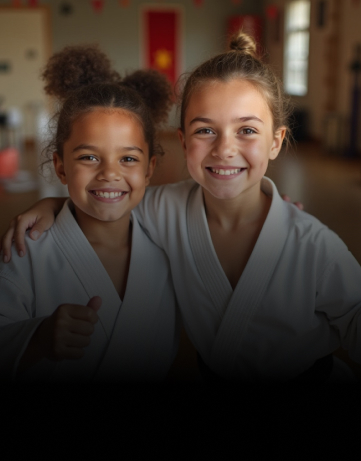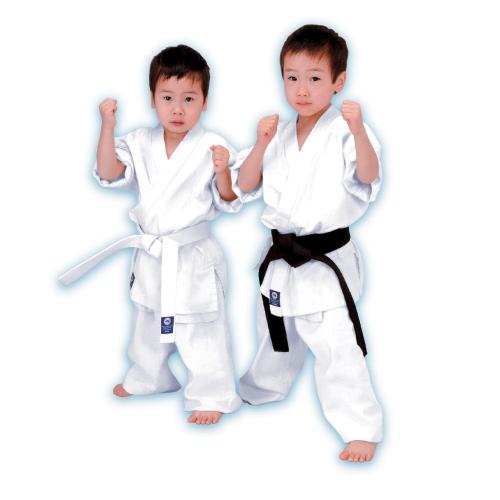Martial Arts Salisbury MD – Where Kids Discover Discipline, Focus, and Enjoyment
Wiki Article
How Martial Arts for Children Can Boost Confidence and Discipline in Young Martial Artists
Karate for children supplies an unique chance to construct self-confidence and discipline in young martial musicians. As they find out new methods and face obstacles, they not just gain abilities however additionally develop a solid feeling of self-respect. This structured environment urges them to appreciate the journey of improvement. How does this training convert into their daily lives? Discover the deeper links that make karate greater than simply a sport.The Importance of Self-confidence in Childhood Growth
Self-confidence is a crucial building block in childhood advancement. When you support your child's self-worth, you equip them to face difficulties, take dangers, and express themselves freely. Kids with self-confidence are extra happy to check out social circumstances and new activities, which can lead to lasting friendships and useful experiences.Encouraging your youngster to get out of their comfort zone fosters strength. They learn that failing isn't the end but instead a stepping stone to success. By commemorating their accomplishments, despite how small, you aid them recognize their abilities and worth.In this journey, support and positive support from you play a vital function. Whether it's via appreciation or just existing, your participation improves their confidence. As they grow, this confidence becomes a lifelong possession, outfitting them to navigate both obstacles and chances with a solid feeling of self.Exactly How Martial Arts Teaches Discipline and Emphasis
Karate assists you develop self-control and emphasis with its organized training program. As you practice mindfulness during each session, you'll find out to concentrate much better both on and off the floor covering. Plus, setting and attaining goals in karate strengthens your capability to remain alert and fully commited.Structured Training Program
While you participate in karate training, you'll swiftly find how a structured routine imparts technique and emphasis in young professionals. Each course adheres to a particular format, consisting of workouts, strategy method, and sparring. This consistency teaches you to value the process and dedicate to renovation. As you find out types and methods, you establish a sense of responsibility for your own progress.The structured environment urges you to set goals, whether understanding a new belt or developing a kata. You'll locate that staying focused throughout drills and courses hones your focus. The technique you cultivate in martial arts extends beyond the dojo, favorably impacting your schoolwork and daily regimens. Each session reinforces the value of dedication, helping you turn into a much more self-displined individual.Mindfulness in Technique
As you practice karate, you'll locate that mindfulness becomes a vital part of your training. Each step requires your complete attention, assisting you remain concentrated on the here and now minute. You'll discover to disregard diversions and concentrate on your breathing, movements, and purposes. This heightened recognition hones your reflexes and boosts your discipline.During sparring or forms, you'll discover the relevance of being emotionally existing - Karate Salisbury MD. You'll see just how this focus not just improves your method but additionally builds your self-confidence. By practicing mindfulness in martial arts, you grow patience and resilience, essential traits that prolong beyond the dojo. In this way, martial arts teaches you to harness your mind, aiding you develop a regimented approach to challenges both on and off the floor covering
Personal Goal Setting Techniques
Setting goals in martial arts isn't practically gaining belts; it's an effective means to cultivate self-control and focus. When you set particular, attainable targets, you produce a roadmap for your progress. As an example, rather than simply intending to boost your kicks, try focusing on understanding a certain strategy each month. This method keeps you determined and engaged.Breaking down larger objectives into smaller, convenient actions assists you track your development and commemorate little victories along the road. Whether it's refining your stance or enhancing your sparring endurance, every objective enhances your dedication. As you accomplish these goals, you'll build confidence in your skills and establish a solid feeling of technique that expands beyond the dojo into everyday life.Building Strength Via Martial Arts
Fighting style, especially karate, supplies youngsters a special chance to construct strength in a helpful setting. In classes, they face obstacles that press their limitations, whether it's understanding a new method or competing with a companion. Each trouble, like a missed kick or a shed match, ends up being a chance to discover and grow.As they practice, children find out to welcome pain and keep attempting, also when things obtain tough. They find that failure isn't the end; it's component of click here the trip. This way of thinking assists them get better more powerful, not just in the dojo, yet in day-to-day life.With each difficulty they conquer, your youngster develops self-confidence in their capability to tackle obstacles, sustaining their resolution. Through karate, they'll comprehend that durability isn't just regarding physical toughness; it's about psychological grit and determination, encouraging them to deal with whatever life tosses their method.The Duty of Respect in Martial Arts Training
Respect is a foundational concept in karate training, cultivating a society of technique and friendship among trainees. When you tip onto the dojo floor, you're not simply finding out techniques; you're likewise finding out to respect your instructors, peers, and the art itself (Karate Salisbury MD). Bowing at the beginning and end of course isn't simply a rule; it symbolizes your acknowledgment of others' dedication.as and initiatives you establish mutual respect, you'll locate it boosts your learning experience. You'll pay attention much more attentively to your instructor and gain insights from fellow pupils. This environment encourages constructive criticism and assistance, enabling everybody to grow together.Moreover, respect cultivates self-discipline. Acknowledging the value of effort and humility assists you stay focused on your training. Consequently, this respect translates into your day-to-day life, boosting your communications and partnerships outside the dojo. With karate, you learn that respect is essential for personal development and community buildingSetting Goals and Attaining Success in Martial arts

Social Skills and Synergy in the Dojo
While training in the dojo, children naturally establish vital social abilities and synergy abilities. As they exercise together with peers, they find out to interact properly, share area, and support one another. Each course offers chances for partnership, whether it's throughout partner drills or group exercises. This synergy fosters friendships and develops a feeling of belonging, making the dojo a nurturing environment.Kids additionally obtain important problem resolution abilities. When they encounter obstacles, such as disputes during sparring, they find out to browse these scenarios constructively. They exercise persistence and compassion, recognizing that everyone has different staminas and weaknesses.Moreover, taking part in team activities cultivates a feeling of responsibility. You'll see your child discovering to depend on teammates and take responsibility for their duty in a group. These experiences not just boost their martial arts journey however additionally outfit them with social tools they'll carry into various other locations of life.
The Long-Term Advantages of Martial Arts Beyond Childhood Years
As children mature and shift into the adult years, the advantages of karate prolong much past the dojo. You'll find that the technique and emphasis found out through karate can translate into your academic and specialist life. Setting and achieving goals in martial arts promotes a strong work values, which can push you to master any kind of endeavor.Moreover, the confidence gained from grasping strategies and sparring can boost your self-confidence, helping you tackle obstacles head-on. This durability ends up being important as you encounter the unpredictabilities of adulthood.Additionally, the social skills created through team effort and sociability in the dojo can cause far better relationships in both professional and personal rounds. You'll discover to interact efficiently, resolve conflicts, and build a helpful network.Ultimately, karate forms not simply knowledgeable martial musicians, yet well-rounded people all set to take on the world.Regularly Asked Concerns
What Age Is Best to Beginning Martial Arts for Children?
You can start karate as very early as age 4 or five, however it commonly depends on your child's maturity and passion. Locating a class that matches their age and power degree makes a huge distinction.Are There Any Wellness Benefits From Exercising Karate?
Yes, practicing karate offers various health and wellness benefits. You'll enhance your versatility, strength, and control while enhancing cardiovascular health and fitness. And also, it enhances focus and mental well-being, making it a wonderful choice for general physical and mental health.Just How Typically Should Children Participate In Martial Arts Classes?
You ought to encourage your youngsters to go to karate classes a minimum of two to 3 times a week. Uniformity assists them learn techniques effectively and develop skills, making their experience extra fulfilling and enjoyable over time.Can Karate Assist With Managing Anxiousness in Kid?
Yes, karate can assist take care of anxiousness in youngsters. It shows focus and self-discipline while supplying a safe electrical outlet for energy. You'll see your kid growing a lot more positive and tranquil as they practice regularly.What Gear Is Needed for Kids Starting Karate?

Report this wiki page